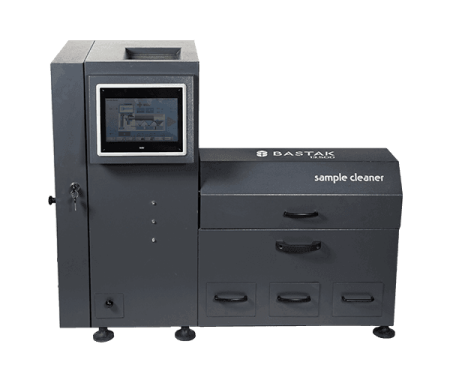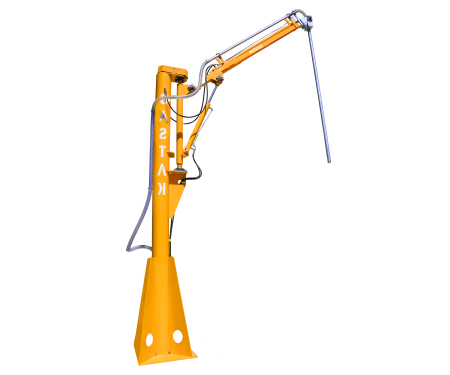SMART HAMMER MILL 1900
Explanation
Bastak Brand 1900 Model Hammer Mill is used in the grinding process of; cereals (wheat, barley, corn, paddy, rice, rye, oats…), legumes (beans, peas, chickpeas, lentils, soybeans, broad beans…), oil seeds (sunflower, canola, safflower, flax, cotton seed, sesame, hazelnut, pistachio, peanut, almond, …), feed raw materials (corn gluten, wheat bran, rice bran, cracked wheat, bonquality, starch, razmol, sunflower meal, canola meal, soybean meal, sugar beet pulp, cotton pulp, malt, malt flour, meat bone meal, fish meal, salt, marble powder, minerals, vitamins, powder drugs, premixes...) and feeds.
AVANTAJLAR
- It has ICC No.189 standard.
- It performs the grinding process in perfect optimization in international standards.
- Thanks to the digital touch screen, it can be operated at the desired speed and the working time can be observed.
- It works with a motor that makes 16,800 revolutions per minute, and optional sieve change can be made according to the type of grinded sample and the desired sample size.
- It has Sample Feed Adjustment feature.
- Grinding Size Adjustment
- Grinding capacity is 200-300 grams.
- Grinding efficiency is 100%.
- It has a robust, long-lasting, ergonomic design.
- It offers the user a unique grinding experience.
The two main products obtained by grinding the wheat grain are wheat flour and bran grain. For the miller who first processes the wheat, the quality is that the white flour yield and milling quality of the wheat is high, but the energy consumption is low. Wheat flour yield is not only an important feature of the milling industry, but also an important feature of wheat quality. By using experimental grinding methods (AACC 1983, 26-20, 26-21, 26-30), commercial grinding performance can be determined by grinding trial of wheat with the help of laboratory research mills. With Bastak Brand 4500 and 4500S model laboratory type double passage mills, the values of the raw materials to be grinded in the factory are determined in advance and by this way necessary changes and arrangements can be made for production.
Working Principle;
The grinding principle in hammer grinding is based on the principle of crushing the sample in the grinding bowl of the hammers with a high speed rotating speed 16800 rpm. The rotation speed of the hammers can be adjusted via the touch screen to change between 500-16800 rpm. The product, which is ground in the grinding vessel, is sent to the sample collection container with the help of air flow, passing through the steel sieve at the top of the container. The steel sieve can be replaced with 0.3 - 0.4 - 0.5 - 0.6 mm mesh sieves. Product grinding speed: Is adjusted via the touch screen and by the air flow entering the feed adjustment cover. In addition, the working time can be adjusted on the screen. The air leaves the device through the dust filter. As the air is removed from the dust filter, the ground sample is collected in the sample container. After grinding, the device is stopped with the on/off function on the touch screen. Then it is turned off by the on/off button on the machine. In order to collect the ground product, the container is released by pulling down the spring compression bar located under the sample collection container. Then the released container is removed and the ground product inside is taken
Industrial Application Areas
Bastak company produces roller, hammer and burn mills with a total of 8 different types of mills. Bastak is the only manufacturer in the world with such a wide range of mills. With the different types of mills mentioned, you can perform physical, chemical, microbiological, physicochemical, photochemical, rheological and organoleptic tests, especially moisture. Our mills are used in many sectors that the industry needs. More than 20,000 devices of Bastak technology, including laboratory mills, are actively working in 150 countries around the world. A very significant amount of economic assets in the global scope are classified by testing the samples prepared by Bastak Laboratory mills. These mills have been offered to the use of all universities, academicians, research centers and international quality control laboratories in the world by taking the ICC standard and have received international standards. Their results have become unquestionably acceptable around the world. With the values obtained from these mills, it is possible to control the quality of the semi-product starting from the analysis of the raw material at the entrance of the factory. Thus, the quality control of the semi-finished material to be released is predetermined. By giving millions of dollars, companies classify the raw materials they buy with the help of our laboratory mills with sensitive international standardization, determine their economic values and make sure of the product they make. Companies benefit from Bastak laboratory mills in order to identify the problem they will encounter before producing their product, to take the necessary measures and to reach the targeted quality by creating the raw material blends correctly.
Technicial Specifications
| TECHNICAL | |
| Resistance to Corrosion | Yes |
| Scratch Resistant Special Static Paint | Yes |
| Critical Parts Made by Aluminum | Yes |
| SMPS Power Supply (voltage variations) | Yes |
| Sample Type | cereals, legumes, oilseeds, pellets, dry leaves, plant root |
| Mill Type | Hammer Mill |
| Raw Material | cast iron |
| Grinding Capacity | 200-300 g/min |
| Grinding Speed | Fast |
| Power Engine & Revolutions | 0,55 Kw 2780 rpm |
| Sample Container | Yes |
| Emergency Stop Button | Yes |
| Motor Protection (Basic) | Yes |
| Noise level of the device (dB) | 82-84 |
| Output Yield / Efficiency | 100% |
| Homogeneous Milling | Yes |
| Sample Feeding Adjustment | Yes |
| Milling Size Adjustment | Yes |
| Sifting Period Adjustment | Yes |





